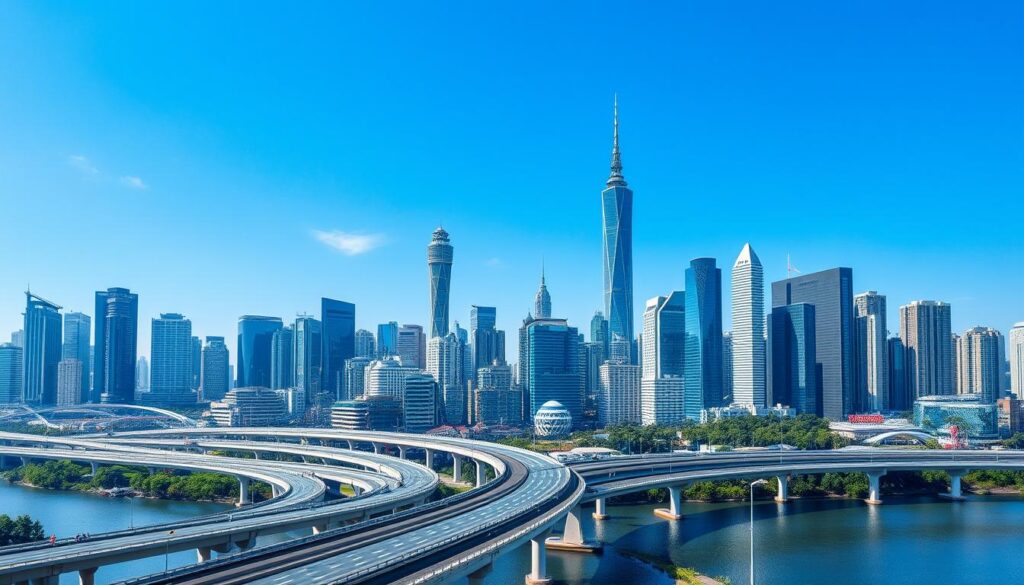The rapid urbanization and infrastructure development across Southeast Asia have created unprecedented demand for skilled civil engineers. As cities expand and modernize, the need for specialized engineering expertise continues to grow exponentially. From Singapore’s cutting-edge smart city initiatives to Vietnam’s ambitious transportation networks, civil engineers are at the forefront of transforming the region’s built environment.
This surge in development has created distinct specialization paths within civil engineering, each offering unique career opportunities and challenges. Understanding these high-demand specializations and their corresponding salary trends can help both aspiring and established engineers make informed career decisions in this dynamic region.
Modern infrastructure development across Southeast Asia is creating high demand for specialized civil engineers
Urban Development Engineering: Building Tomorrow’s Cities
Urban development engineering has emerged as one of the most critical specializations in Southeast Asia’s rapidly evolving landscape. This field focuses on the comprehensive planning, design, and management of urban spaces to create sustainable, efficient, and livable cities for growing populations.

Urban development engineers combine technical expertise with sustainable design principles
Essential Skills for Urban Development Engineers
- Sustainable urban design principles
- Geographic Information Systems (GIS) proficiency
- Urban planning and zoning regulations
- Building Information Modeling (BIM)
- Environmental impact assessment
- Traffic flow analysis and management
- Water resource management
- Public infrastructure planning
- Climate resilience strategies
- Stakeholder engagement techniques
Key Demand Drivers
Several factors are fueling the demand for urban development engineers across Southeast Asia:
Population Growth
Southeast Asia’s urban population is projected to increase by 100 million by 2030, creating urgent needs for housing, utilities, and public spaces.
Smart City Initiatives
Countries like Singapore, Malaysia, and Thailand are investing heavily in smart city technologies that require specialized engineering expertise.
Climate Adaptation
Rising sea levels and extreme weather events necessitate climate-resilient urban design, particularly in coastal cities like Jakarta and Manila.
Notable Urban Development Projects in Southeast Asia
| Project | Location | Key Features | Engineering Challenges |
| Jakarta MRT | Indonesia | 16-station underground and elevated rail system | Flood mitigation, soft soil conditions |
| Singapore’s HDB Developments | Singapore | Integrated housing with green spaces and amenities | Land scarcity, sustainability requirements |
| Kuala Lumpur Eco City | Malaysia | Mixed-use development with green certification | Integration with existing infrastructure |
| Manila Bay Reclamation | Philippines | Land reclamation for commercial and residential use | Environmental impact, typhoon resilience |
Advance Your Urban Development Engineering Career
Download our comprehensive guide to urban development engineering skills and certification pathways in Southeast Asia.
Transportation Infrastructure Engineering: Connecting the Region
Transportation infrastructure engineering plays a pivotal role in Southeast Asia’s economic development and regional connectivity. As countries invest billions in new highways, railways, airports, and ports, engineers specializing in transportation infrastructure are in exceptionally high demand.
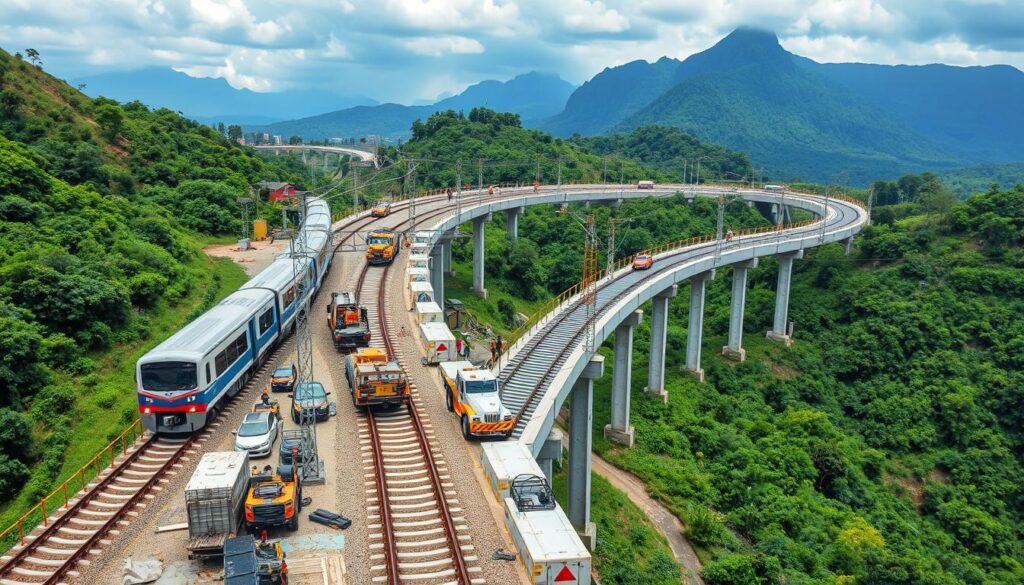
High-speed rail projects are creating significant demand for transportation engineers across Southeast Asia
The Role of Transportation Engineers in Southeast Asia
Transportation engineers in Southeast Asia face unique challenges and opportunities shaped by the region’s geography, rapid urbanization, and economic growth. Their responsibilities include:
- Designing resilient transportation networks that can withstand monsoon seasons and natural disasters
- Planning and implementing cross-border infrastructure projects that connect multiple countries
- Developing sustainable transportation solutions that reduce congestion and environmental impact
- Integrating traditional and modern transportation systems to serve diverse populations
- Implementing smart transportation technologies to improve efficiency and safety
Trending Transportation Projects in Southeast Asia
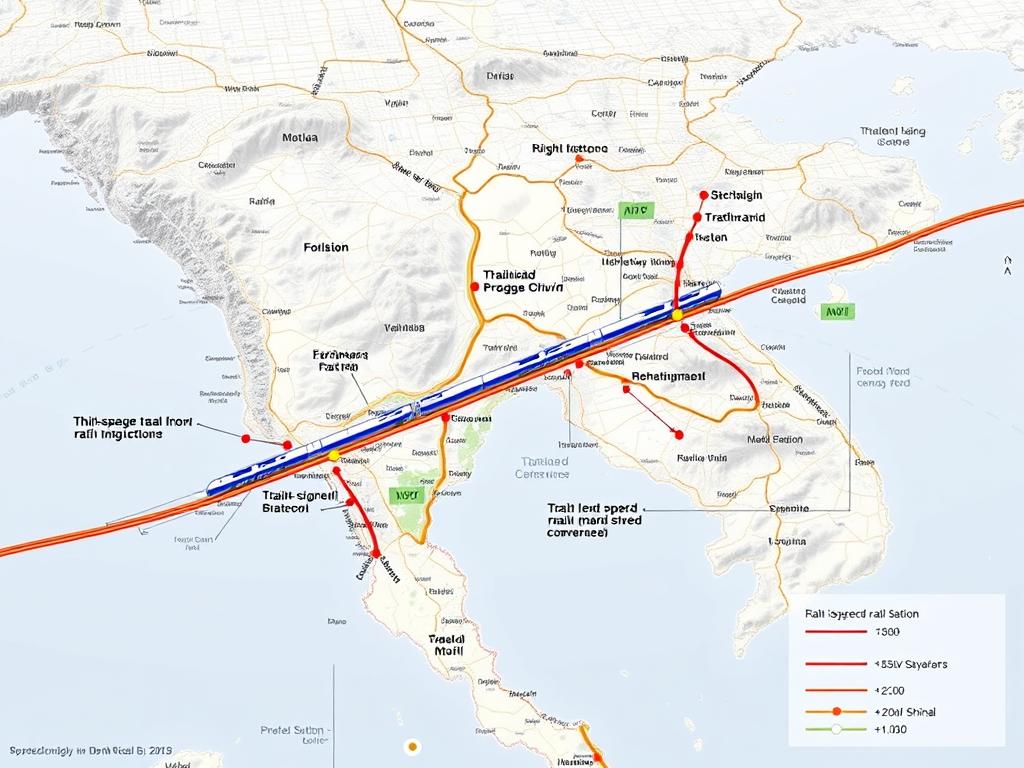
Thailand’s High-Speed Rail
The 873 km high-speed rail project connecting Bangkok to Nong Khai, which will eventually link to China’s Belt and Road Initiative, requires specialized expertise in rail engineering and international standards compliance.
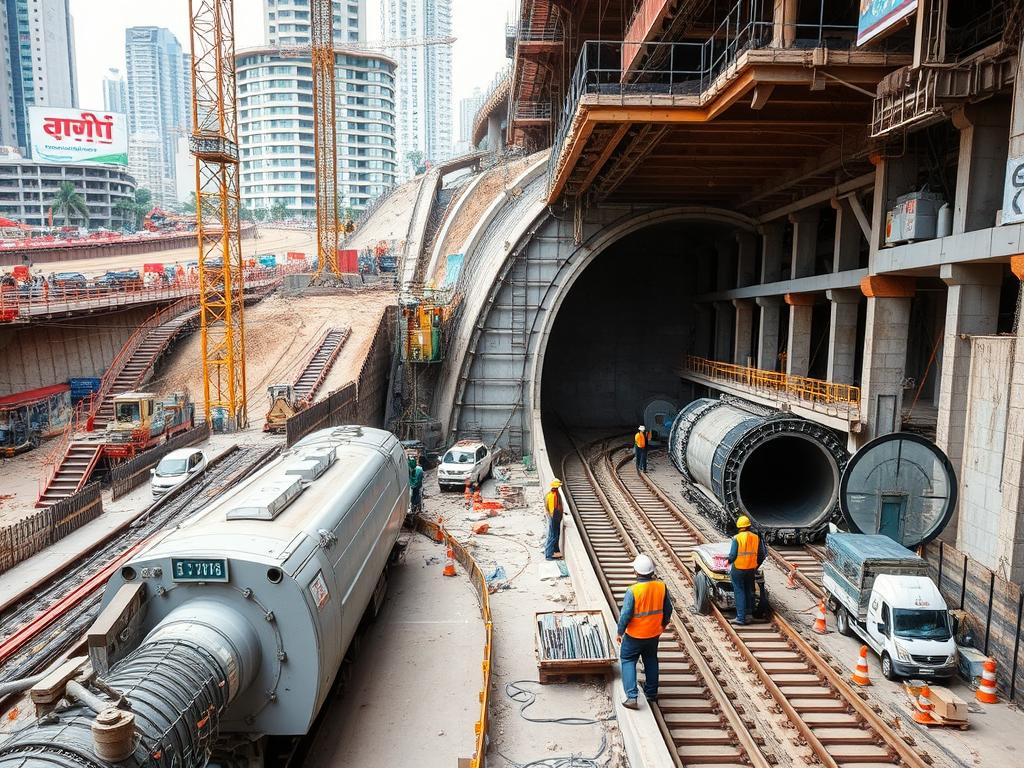
Vietnam’s Metro Systems
Ho Chi Minh City and Hanoi are developing comprehensive metro networks to address urban congestion, creating opportunities for engineers with underground construction and urban integration expertise.
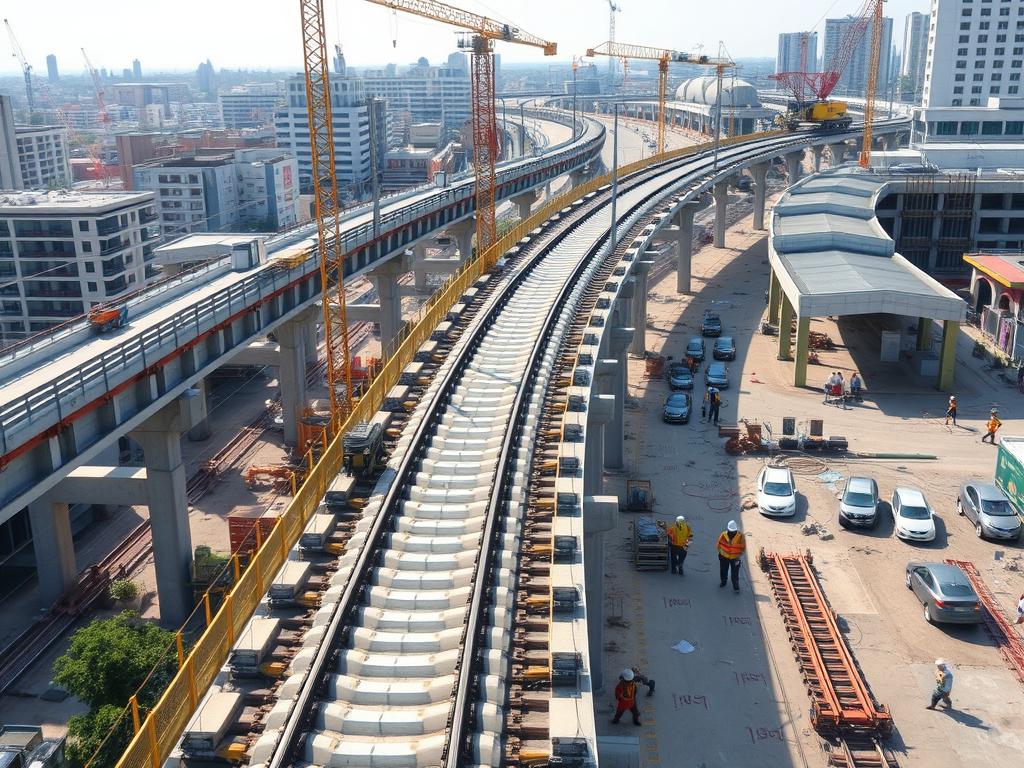
Philippines’ North-South Railway
The 163 km North-South Commuter Railway project aims to connect Clark International Airport to Calamba, requiring expertise in elevated rail design and urban integration.
Emerging Technologies in Transportation Engineering
Building Information Modeling (BIM)
BIM has revolutionized transportation infrastructure design and construction in Southeast Asia by enabling better collaboration, clash detection, and lifecycle management. Engineers proficient in BIM software like Revit, Civil 3D, and Navisworks are particularly sought after for major infrastructure projects.
Autonomous Vehicle Infrastructure
Singapore leads the region in preparing for autonomous vehicles, with dedicated test beds and smart road systems. Engineers with expertise in sensor networks, smart traffic management, and the integration of autonomous vehicle infrastructure are increasingly in demand.

BIM technology is essential for modern transportation infrastructure projects in Southeast Asia
Master Transportation Infrastructure Engineering
Get our exclusive report on emerging technologies and skills needed for transportation infrastructure projects in Southeast Asia.
Salary Comparison for Civil Engineers in Southeast Asia
Understanding salary trends across Southeast Asia is crucial for civil engineers planning their career paths. Compensation varies significantly between countries, specializations, and experience levels, influenced by factors such as economic development, foreign investment, and local demand.

Civil engineering professionals can expect varying compensation across Southeast Asian countries
Average Mid-Career Civil Engineer Salaries by Country
| Country | Average Annual Salary (USD) | Local Currency Equivalent | Urban Development Specialist | Transportation Infrastructure Specialist |
| Singapore | $65,000 – $85,000 | SGD 87,000 – 114,000 | $70,000 – $95,000 | $75,000 – $100,000 |
| Malaysia | $25,000 – $40,000 | MYR 105,000 – 168,000 | $30,000 – $45,000 | $35,000 – $50,000 |
| Thailand | $20,000 – $35,000 | THB 650,000 – 1,140,000 | $25,000 – $40,000 | $30,000 – $45,000 |
| Philippines | $15,000 – $30,000 | PHP 750,000 – 1,500,000 | $18,000 – $35,000 | $20,000 – $38,000 |
| Indonesia | $18,000 – $35,000 | IDR 260M – 500M | $22,000 – $40,000 | $25,000 – $45,000 |
| Vietnam | $12,000 – $25,000 | VND 280M – 580M | $15,000 – $30,000 | $18,000 – $35,000 |
| Myanmar | $10,000 – $20,000 | MMK 18M – 36M | $12,000 – $24,000 | $15,000 – $28,000 |
Factors Influencing Civil Engineering Salaries in Southeast Asia
Project Scale and Complexity
Engineers working on large-scale international projects typically command higher salaries than those on smaller local developments. Major infrastructure initiatives funded by international organizations often offer premium compensation packages.
Foreign Investment and Expertise
Countries with significant foreign investment in infrastructure, such as Vietnam and Indonesia, often offer competitive salaries to attract and retain skilled engineers, particularly for specialized roles that local talent pools cannot fill.
Local Regulations and Certification
Engineers with professional certifications recognized across multiple Southeast Asian countries can command salary premiums of 15-30%. Understanding local building codes and regulations is also highly valued.
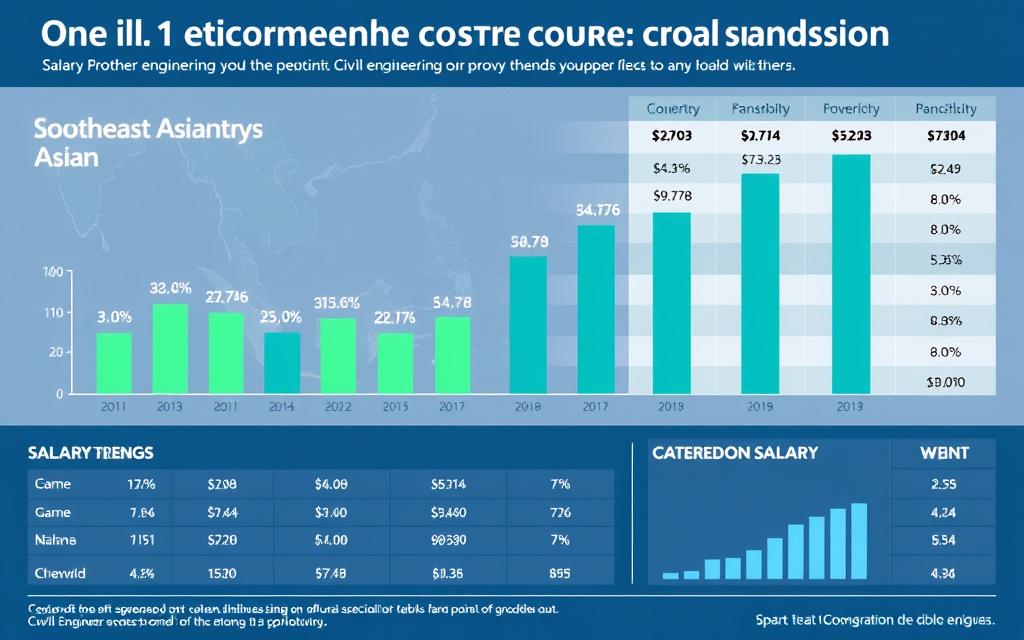
Salary comparison across civil engineering specializations in Southeast Asia (2023-2024 data)
“The demand for specialized civil engineers in Southeast Asia is expected to grow by 25% over the next five years, with the highest growth projected in urban development and transportation infrastructure roles.”
Get the Complete Salary Guide
Download our comprehensive 2024 Civil Engineering Salary Guide for Southeast Asia with detailed breakdowns by specialization, experience level, and project type.
Other High-Demand Civil Engineering Specializations
While urban development and transportation infrastructure lead the demand in Southeast Asia, several other civil engineering specializations are also experiencing significant growth and offering attractive career opportunities:
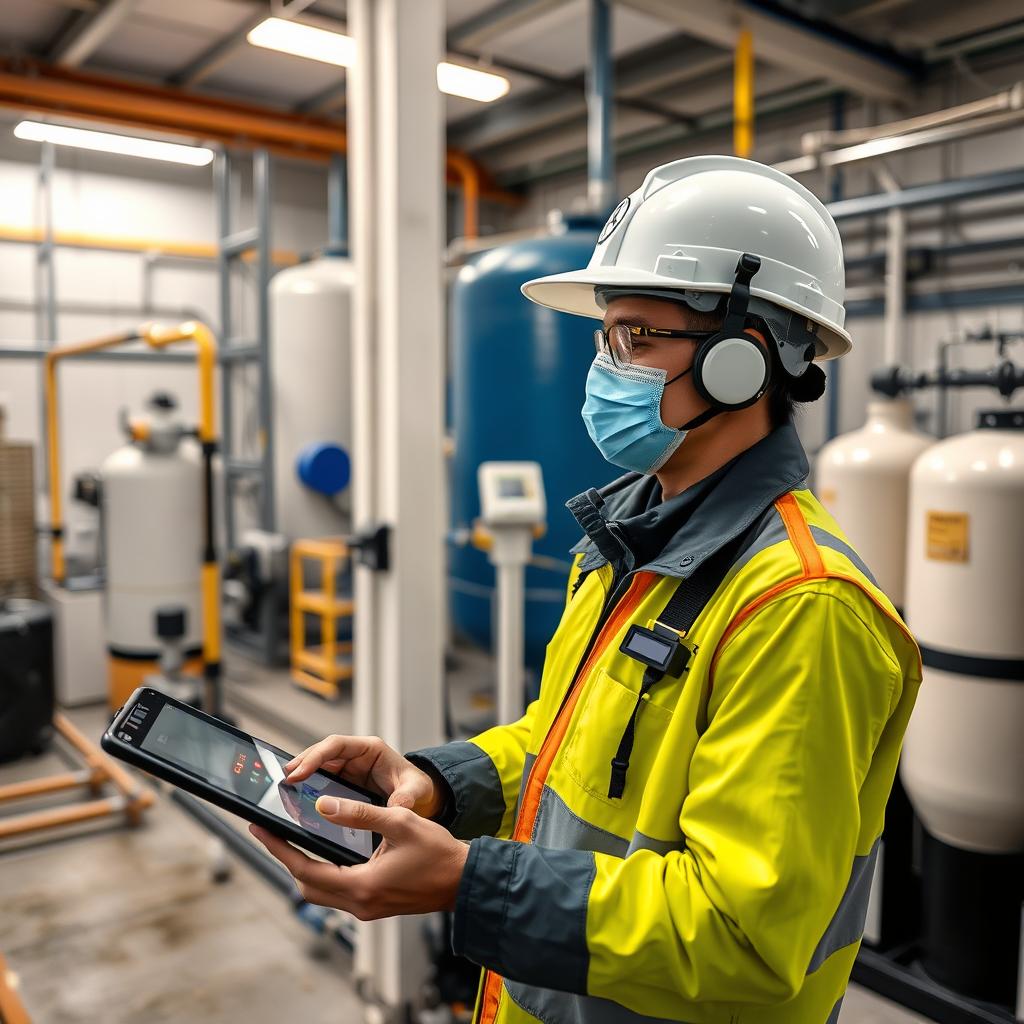
Environmental Engineering
With increasing concerns about pollution, climate change, and sustainable development, environmental engineers are in high demand across Southeast Asia. They focus on waste management, water treatment, air quality monitoring, and environmental impact assessments.
Growing Demand
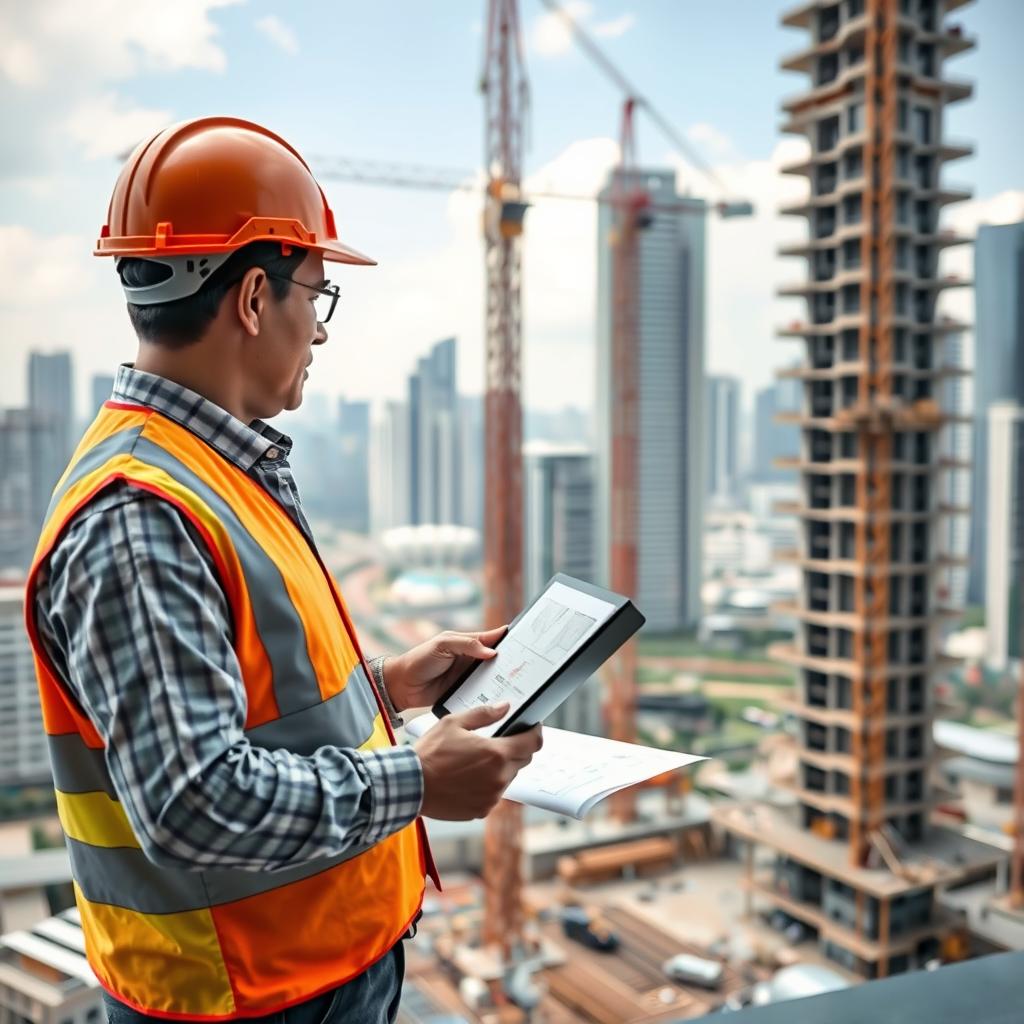
Structural Engineering
Structural engineers remain in high demand throughout Southeast Asia, particularly in earthquake-prone regions like Indonesia and the Philippines. Their expertise in designing resilient structures is critical for the region’s rapid vertical development.
Consistent Demand
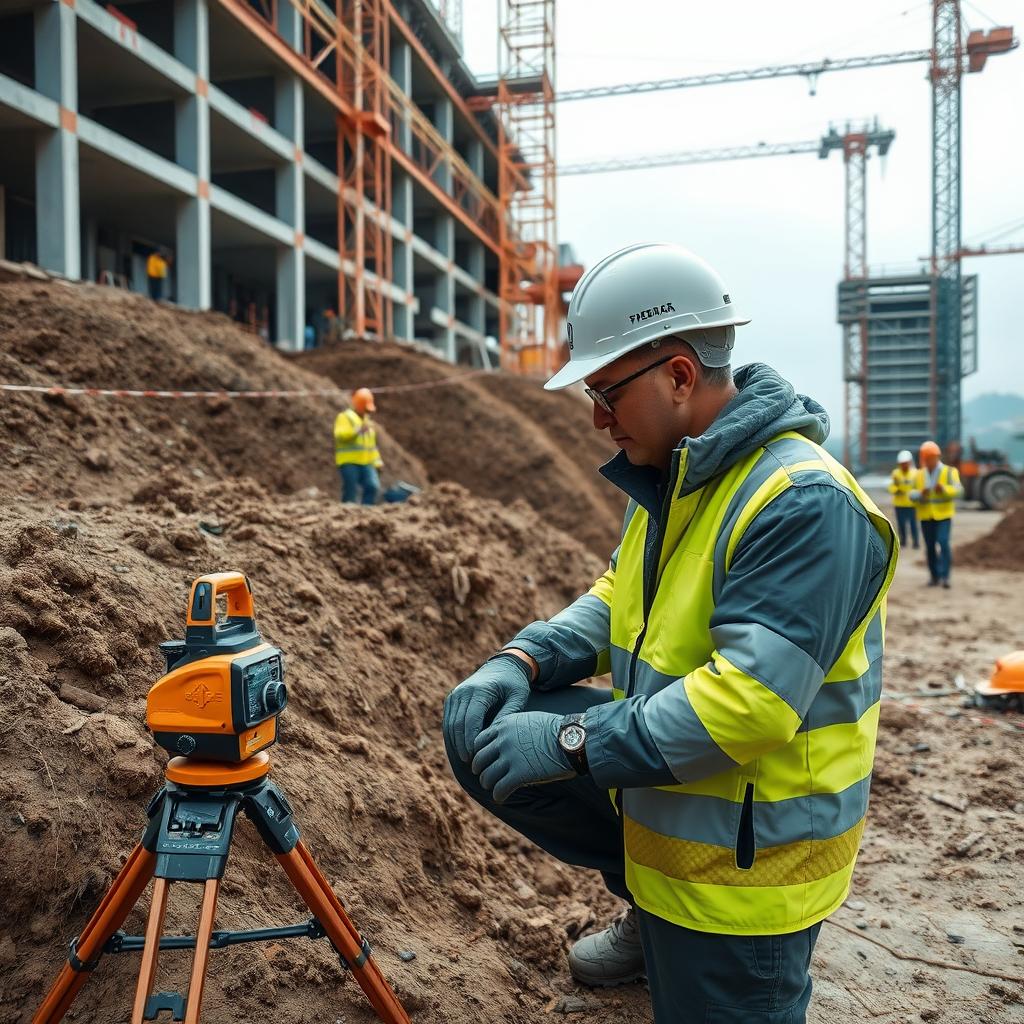
Geotechnical Engineering
The challenging soil conditions in many Southeast Asian countries, from the soft clay of Bangkok to the volcanic soils of Indonesia, create strong demand for geotechnical engineers who can design appropriate foundations and earthworks.
Specialized Demand
Conclusion: Navigating Your Civil Engineering Career in Southeast Asia
The civil engineering landscape in Southeast Asia offers exceptional opportunities for both new graduates and experienced professionals. The region’s rapid urbanization, infrastructure development, and economic growth continue to drive demand for specialized engineering expertise across multiple disciplines.
Urban development and transportation infrastructure engineering stand out as particularly promising specializations, offering competitive salaries and diverse project opportunities. However, environmental, structural, and geotechnical engineering also present viable career paths with strong growth potential.

Collaboration and specialized expertise are key to successful civil engineering careers in Southeast Asia
Future Trends in Southeast Asian Civil Engineering
- Climate-Resilient Infrastructure: As climate change impacts intensify, engineers with expertise in designing resilient infrastructure will be increasingly valued.
- AI and Automation Integration: The adoption of artificial intelligence and automation in design and construction processes will create new specialization opportunities.
- Cross-Border Projects: Regional integration initiatives will drive demand for engineers who can navigate multiple regulatory environments and international standards.
- Sustainable Development: The push for green building and sustainable infrastructure will continue to shape civil engineering practices across the region.
By focusing on high-demand specializations and developing expertise in emerging technologies and methodologies, civil engineers can position themselves for rewarding careers in Southeast Asia’s dynamic construction and infrastructure sectors.
Stay Updated on Civil Engineering Trends
Subscribe to our newsletter for the latest insights on civil engineering specializations, salary trends, and career opportunities in Southeast Asia.
Frequently Asked Questions
Which civil engineering specialization has the highest salary potential in Southeast Asia?
Transportation infrastructure and urban development specialists typically command the highest salaries in Southeast Asia, particularly in Singapore and Malaysia. Engineers working on international projects or with multinational firms generally earn 20-30% more than those on local projects.
What qualifications are most valued for civil engineers in Southeast Asia?
Beyond a bachelor’s degree in civil engineering, employers in Southeast Asia highly value professional certifications, specialized master’s degrees, and experience with international standards. Proficiency in BIM software, sustainability certifications, and project management qualifications are particularly sought after.
How does the job market for civil engineers in Southeast Asia compare to other regions?
Southeast Asia currently offers one of the most dynamic job markets for civil engineers globally, with an estimated 15-20% growth in positions over the next decade. While salaries may be lower than in North America or Europe, the volume and diversity of projects provide excellent experience and career advancement opportunities.
Are there opportunities for foreign civil engineers in Southeast Asia?
Yes, there are significant opportunities for foreign civil engineers, especially those with specialized expertise not readily available locally. Countries like Singapore, Malaysia, and Vietnam actively recruit international talent for major infrastructure projects. However, understanding local regulations and cultural contexts is essential for success.
